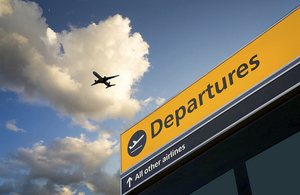CMA report shows benefits of BAA break-up
The CMA has published an evaluation of the decision to break up BAA.

Following an investigation completed in 2009, the Competition Commission (CC), one of the Competition and Markets Authority’s (CMA) predecessor bodies, ruled that BAA should be required to sell 3 of its airports to increase competition for the benefit of airlines and passengers. Subsequently BAA sold Gatwick in 2009 followed by Edinburgh in 2012 and then Stansted in 2013. The CC also made a range of other recommendations including ones on reforming the regulatory regime for airports.
The CMA’s detailed analysis, underpinned by an assessment by independent consultants, shows how the airports have responded to being under new and separate management.
All 3 have grown passenger numbers following divestments over and above levels observed at comparable airports. This increase in passenger throughput resulted in up to 34 million additional passenger journeys from 2009 to 2015 – an average increase of around 10%. Both Gatwick and Stansted have increased their share of passengers travelling to and from London’s airports since divestment and Edinburgh’s share in lowland Scotland is also increasing. The report details how, under their new owners, the airports have also sought to attract airlines and passengers outside their traditional target market.
Independent estimates in the report indicate that the quantifiable benefits associated with the remedies, relating to the benefits from increased passenger numbers such as improved connectivity and choice and downward pressure on fares, would total around £870 million by 2020.
The report also points to a range of other improvements at the airports such as:
- improved service quality and efficiency
- increased investment in facilities
- development of positive long-term relationships with airlines over issues like airport charges
- route development
- innovations to maximise limited runway capacity
The introduction of separate ownership has also helped facilitate a more flexible and lighter touch regulatory framework which the Department for Transport estimates will deliver benefits of £195 million over a 20 year period. In addition, following the sales Heathrow has benefited from operating as a stand-alone airport and in 2015, passengers scored its overall service quality above the average of the highest scoring European airports.
The report recalls that, although it foresaw the immediate advantages from greater competition between airports, when the CC made its decision it was also clear the full benefits could only be realised by an increase in runway capacity. Today’s report again makes the point that limited capacity restricts the ability for airlines to expand and to be able to threaten to switch to another airport more credibly. If they could do so, competition between airports would intensify - leading to lower air fares and further efforts to increase service quality and make other improvements.
Alex Chisholm, CMA Chief Executive said:
Our assessment has confirmed that with the freedom to make independent commercial decisions to attract passengers and airlines, the airports now under separate ownership have taken a very different approach from their predecessors. It shows just what a competitive environment and the need to be responsive to customer needs can deliver.
We have been told by those we spoke to that many of these changes would not have happened under monopoly ownership.
We have been able to estimate the sizeable economic benefit from the increase in passengers but the other improvements - whilst less easily quantifiable - are arguably even more tangible for the passenger. Certainly an increased focus on service quality is something that passengers can value more than anything else.
These changes are strong examples of how competition can bring a more dynamic and innovative approach, benefiting business and personal customers. Further gains for customers from competition can be realised if runway capacity restraints can be lifted.
Notes for editors
- The CMA is the UK’s primary competition and consumer authority. It is an independent non-ministerial government department with responsibility for carrying out investigations into mergers, markets and the regulated industries and enforcing competition and consumer law.
- As set out in the terms of reference, the evaluation focussed on the CC’s remedies package including the divestment remedies in south-east England and lowland Scotland, the behavioural remedies on Aberdeen and the recommendations related to the regulatory framework.
- For more information on the CMA see our homepage or follow us on Twitter @CMAgovuk, Flickr and LinkedIn. Sign up to our email alerts to receive updates on markets cases.
- Enquiries should be directed to Rory Taylor ([email protected], 020 3738 6798).